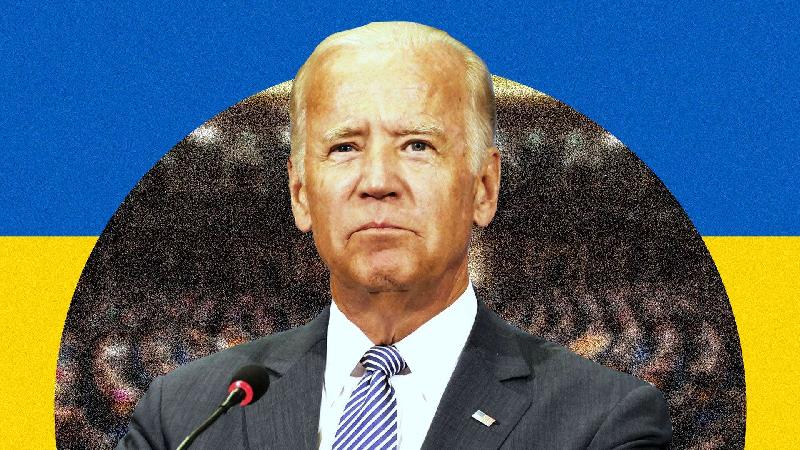President Joe Biden opened his first State of the Union address on a relatively rare foreign policy note, as conflict raged across the world in Ukraine.
“Vladimir Putin sought to shake the foundations of the free world thinking he could make it bend to his menacing ways,” Biden declared. “But he badly miscalculated.”
After praising the resolve of Ukrainian citizens and President Volodymyr Zelenskyy, Biden outlined a series of measures intended to bolster the Ukrainian resistance and punish Russia for its brutal campaign. Key among them were mentions of NATO unity, plans for “a dedicated task force” that would “go after the crimes of Russian oligarchs,” and the closure of American airspace to Russian flights. Sanctions took center stage, while immigration relief was nowhere to be seen.
Thankfully, Biden has opted to pursue measures beyond introducing American soldiers to the fight in Ukraine. “Let me be clear,” Biden said. “Our forces are not engaged and will not engage in conflict with Russian forces in Ukraine.” Given that politicians have been agitating for a U.S.-enforced “no-fly” zone over Ukraine in recent days, this is a critical reassurance. Biden seems to recognize that maintaining a “no-fly” zone would involve direct conflict with Russia. The consequences of such engagement—combat between two nuclear-armed superpowers—could be grave.
There was, however, ample talk of sanctions. As Reason’s Christian Britschgi recently noted, “an inherent feature of this strategy is harming ordinary Russians who aren’t responsible for their dictatorial government’s war and who have few options for influencing its behavior.” Russia’s rich will likely remain rich, even as Russian citizens feel the heat. Large numbers of Russians have taken to the streets to demonstrate their disdain for Putin’s war in Ukraine even so, faced with both shuttered international services and a regime that is arresting them for protesting.
Though Biden was quick to describe the benefits America conveys as a military presence in Eastern Europe—emphasizing the readiness of “American ground forces, aid squadrons, and ship deployments” to protect NATO countries like “Poland, Romania, Latvia, Lithuania, and Estonia”—he was less forthcoming about the benefits the U.S. can offer as a landing pad to Ukrainians hoping to flee their war-torn country and Russians looking for an escape from Putin’s regime.
This would have been the perfect opportunity for Biden to announce immigration protections for Ukrainians—those already on American soil and those hoping to reach it. Immigration advocates have been pushing for a temporary protected status designation for Ukraine, which would prevent Ukrainian nationals from being deported back there. Biden’s Department of Homeland Security could also implement special student relief for Ukrainians, a classification that would protect those who are studying in the U.S. on F-1 student visas. These two measures are simple additions to preexisting immigration infrastructure.
For all the harsh rhetoric against the Russian regime, Biden did not express a willingness to offer immigration relief to Russian citizens. The president spent a fair amount of time in his address outlining ways for America to stay competitive economically and technologically. “Brain drain” immigration measures—offering green cards to Russians with technical degrees, as well as those studying in American universities—could deprive Putin and the already-depopulating Russia of the individuals fueling the Russian economy.
Biden promised just over a year ago that “the United States [would] again lead not just by the example of our power but the power of our example.” Though he was adamant tonight that “a Russian dictator, invading a foreign country, has costs around the world,” he was correct to note that those costs must not be enforced by American guns. That said, Biden’s first State of the Union address could have laid out pragmatic immigration measures based in “the power of our example” that would offer refuge to the people of both Ukraine and Russia.
via reason

